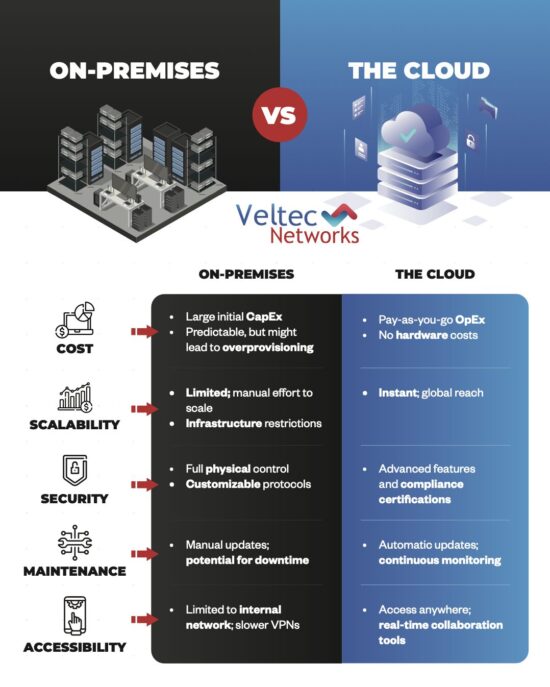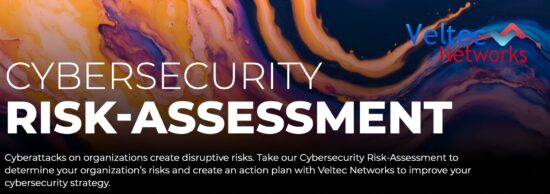Update Antivirus Software to Fend Off Security Risks in Your System
Key Points:
- The threat of cyber attacks is growing as many businesses turn to technology to help them reach their goals.
- Chances of business data getting compromised increase as more organizations move online.
- Your business needs updated antivirus software on its devices to protect your organization from vulnerabilities.
- The latest version of antivirus software will help your business to secure your system against known threats, detect malware, and remove viruses before they disrupt your whole network.
- Outdated antivirus software doesn’t have patches, and if an attacker finds vulnerabilities, your business can fall prey to far more advanced cyber-attacks.
Some things were made to last forever— an antivirus isn’t one of them.
Antivirus software goes out of date. The software might work great after release, but they fester and get moldy with time. The longer you leave an antivirus without updates, the worse it gets.
An outdated antivirus risks compromising your business systems and wreaking havoc on your cyber security. The security vulnerabilities of an outdated antivirus can risk your business data.

How An Outdated Antivirus Software Poses A Risk to Your Business
Today, our lives are more intertwined with technology than ever before. Organizations use computers for everything. However, as your company becomes more reliant on technology, you become more vulnerable to online dangers. One of the online dangers is viruses.
Cyber threats are ever-evolving and getting more sophisticated. As a result, antivirus software has a short life cycle, which developers can only sustain by ongoing updates and upgrades.
When an antivirus application gets outdated, it lacks new definitions for the most recent viruses. The lack of the most recent virus definition makes your system vulnerable. The most recent viruses can enter your system without your antivirus making note of it. Your business can fall prey to the more advanced cyber attacks and chances of system failure.
Viruses can spread quickly and wreak havoc on your computer. Your business can suffer devastating data loss or a system crash if viruses infect your business. Updating your antivirus can secure your business from the latest viruses that would compromise critical data.
How Definition-Based Antivirus Work
Antivirus scans your computer for malicious code and then quarantine or delete any infected files. However, for antivirus software to work effectively, you must update it regularly to have the latest virus definitions. The world lives on definition-based antivirus. Every 24 hours, your antivirus contacts your provider’s server to download a list of known viruses.
The software then updates its local catalog after downloading the latest virus definition, then scans your computer for those viruses. The definition-based system works great unless your antivirus software encounters a virus that your software vendor doesn’t know yet.
Your software vendor doesn’t know about viruses yet are called zero-day attacks. During zero-day attacks, malware exploits vulnerabilities in your operating system, firewall, or software in your IT system. The viruses can deploy the malicious software before anyone knows about it.
The Problem of Definition-Based Antivirus
Initially, viruses spread relatively slow — although fast enough to cause damage. However, internet speeds are post-gigabit today, which has made the exploit of zero-day vulnerabilities serious. Companies are getting hit by ransomware and the fallout from it.
What’s more concerning, there are several new malware technologies that definition-based antivirus can’t catch. The viruses include:
- Polymorphic malware: The definition-based antivirus software cannot detect polymorphic malware. If the antivirus detects such malware, it regenerates itself with new characteristics so that the current definition list can’t detect it.
- Fileless malware: The viruses are the new browser-based malware that doesn’t even use a file structure. The antivirus will have nothing to scan to see if it matches the virus definition list.
- Obfuscated malware: The virus detect a sandbox environment and disguise itself to avoid detection. When the malware passes onto the sandbox, it’ll deploy the malware. Don’t wait until viruses infect your computer to update your antivirus software. Update it to protect your IT infrastructure from digital world dangers.
Upgrading Your Antivirus to EDR and Zero Trust Solution
Endpoint detection and response (EDR) is a set of security systems that use behavior analysis on everything running on the endpoint to detect malware. The system needs no virus definitions because it’s behavior-driven.
Depending on the endpoint detection and response option, the antivirus can provide a self-healing option and isolate the computer with the virus from your network. Then the system determines the action the malware takes and reverses those actions automatically to bring the endpoint back on the network.
An EDR has a great detection rate for malware when compared with standard antivirus solutions. The speed of your computer will increase because an EDR antivirus uses fewer resources and doesn’t need to scan your hard drive as the traditional antivirus.
The Zero Trust Antivirus Solutions
Another antivirus technology is the Zero Trust technology, which lets your business lock down applications on your system that they can’t run unless your IT team approves them. With the technology, you whitelist applications that you trust and disallow the rest.
Depending on your vendor, you can execute storage control to restrict copying data and logging when accessing files. If the antivirus blocks an application that someone in your business wants to use, they request access from your IT team.
Combining both EDR and zero-trust antivirus technology reduces the chances of malware attacks.
Your Business Requires Automatic Antivirus Update
There’s much more at stake when protecting your business devices than a personal machine. You need software that will not only one endpoint but the entire network of computers and servers onsite and remotely.
There are plenty of reasons why your business needs automatic updates. Automation ensures that someone doesn’t forget or neglect to update the antivirus. More importantly, automatic updates save your employees the need to do updates themselves.
Veltec Networks Can Help You Protect Your Business From Virus Attacks
Since 2007, we’ve helped businesses manage the risk of cybersecurity breaches and can help you. Our IT security experts can help you secure customer records, accounting data, computer data, and email from virus attacks. Contact us today to protect your business from data breaches that can ruin your years of hard work.






